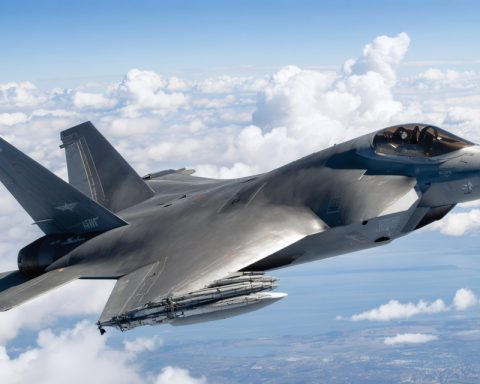A startling incident unfolded over the Red Sea as the U.S. military accidentally shot down their own fighter jet, an F/A-18 Hornet, operating from the aircraft carrier Harry S. Truman. The mishap took place on Sunday, forcing both pilots onboard to eject. Although they were both rescued, one pilot suffered minor injuries.
Unexpected Attack
The fighter jet was mistakenly hit by gunfire from the missile cruiser Gettysburg, an escort ship of the aircraft carrier. An investigation by the U.S. Central Command is underway to understand the events leading to this unprecedented mistake.
Rising Tensions in the Red Sea
The Red Sea has witnessed increased military activity due to ongoing conflicts. Just a day before the incident, the U.S. Navy engaged in defensive actions by targeting Houthi missiles and drones, as well as hitting strategic sites in Sanaa, Yemen. These tensions stem from repeated attacks by Houthi forces on ships navigating this crucial waterway.
The incident highlights the escalating military challenges in the region, underlining both the strategic importance and volatility of the Red Sea. The U.S. military’s recent operations reflect broader concerns over maritime security and stability amid ongoing conflicts.
US Military’s Friendly Fire Incident in the Red Sea: What This Means for Global Security
In a rare and unfortunate turn of events, the U.S. military faced a significant mishap over the Red Sea as friendly fire resulted in the downing of their own F/A-18 Hornet fighter jet. While the incident has captured international attention, it also sheds light on broader security concerns and operational challenges in the region.
How the Incident Unfolded
The ill-fated event saw the missile cruiser Gettysburg mistakenly firing upon the fighter jet, leading to an urgent extraction of the two pilots on board who, fortunately, managed to eject safely. Though one pilot sustained minor injuries, the incident has prompted U.S. Central Command to initiate a thorough investigation to identify deficiencies in operational protocols and communication.
Pros and Cons of Escort Naval Operations
Escort naval operations offer strategic advantages, such as providing additional anti-air and anti-submarine capabilities to aircraft carriers. By having a network of support ships like the Gettysburg, carriers are better defended against potential threats. However, the downside, as illustrated by this incident, involves the risk of miscommunications, which can lead to friendly fire in high-tension environments.
Broader Implications for Security and Stability
The incident is emblematic of increasing military activity and heightened tensions in the Red Sea—a strategically vital maritime route susceptible to regional conflicts. Prior to this mishap, U.S. forces actively engaged in defensive strikes against Houthi missiles and drones, exacerbating the precariousness of the area.
Technology and Coordination in Modern Warfare
This incident highlights the necessity for advanced coordination technologies to prevent future friendly-fire scenarios. Innovations in secure communication systems and enhanced radar tracking are pivotal for improving precision and decision-making in complex operational theaters.
Strategic Importance of the Red Sea
The Red Sea’s value as a global shipping route makes it a hub of geopolitical interests. With ongoing conflicts, ensuring the security of this passage is vital, stressing the need for international collaboration in maritime security.
Predictions and Future Considerations
Experts predict that as political tensions in the Middle East persist, we might see an increase in both military presence and potential miscalculations. Strengthening diplomatic ties and investing in technology aimed at better operational integration among allied forces are possible paths forward.
For more insights on maritime security and defense innovations, please visit the U.S. Navy and Central Command websites, where they regularly update on defense strategies and regional military operations.












